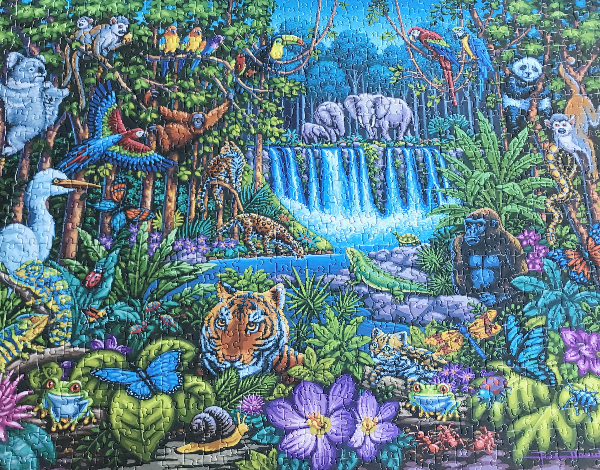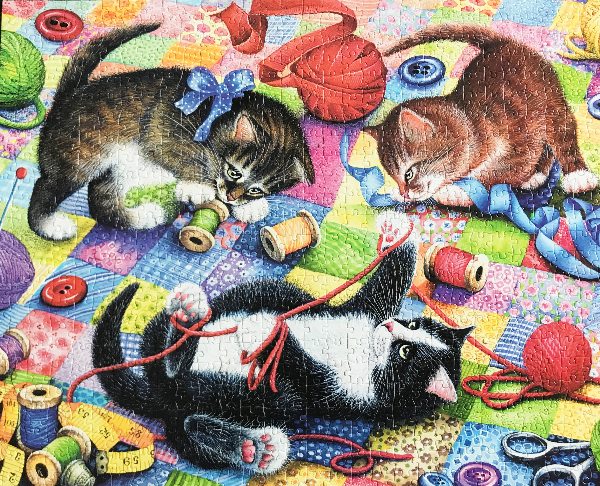More than a form of entertainment, these puzzles were the source of reflection.

Once social isolation arrived in Arkansas, like everyone else, my life changed. Weekends that used to be spent at Oaklawn, watching our horses run, were now spent at home. What to do with all of this free time? Being in a rental, and not my own home, my options were limited. There were the obvious choices of binge watching tv shows and reading books. I knew I’d need more than that. I decided to go with classic home entertainment- jigsaw puzzles.
Being one who likes a plan and system, the puzzles start with a border. Then the middle is more hit and miss. Pick a spot, find the pieces, build what you can. Both my husband and I work on the puzzles, as breaks during our workdays, while we wait for dinner to finish cooking, and to fill part of our weekend hours.
We’re through two puzzles and have begun our third. As I work on each, I learn new things that I’m trying to apply to everyday life.

1. You need to look at things from different angles. As I stand on one side of our puzzle table (AKA half of the dining table), the piece I am seeking cannot be found. When I walk to the other side and look again, there is the exact piece.
In the past year I have tried to be more aware of perspective. When someone makes a comment, although my instinct may be to react automatically, I think about what she meant. Perhaps that person was trying to be comical, but the joke came out wrong. When someone offers feedback that is not is alignment with my own thinking, it doesn’t mean he is wrong. It might just be a matter of perspective.
2. If you pay attention to details, you will find the right puzzle piece. Rather than simply looking for a piece that has a bright purple stripe, I try to note the size and what the outline should be. Then, rather than having five or six pieces to try in that spot, I might have only one or two.
Details are key to so many things. Whether it’s working on a recipe and paying attention to exact measurements or listening carefully to a friend, it’s the details that matter. A cake won’t rise well without the proper amount of baking soda and/or powder. A friend won’t feel valued if you don’t remember what’s important to her. Details are crucial.
3. You don’t need to compete in all activities. Both my husband and I work on these puzzles, not always at the same moment, but they definitely are a team effort. What I need to remember is that we’re on the same team. Whether he finds the elusive piece or I do, the puzzle is being completed. Yay, us!
Being competitive can be a blessing and a curse for me. Sometimes it is the motivation I need to push a little harder. For example when a yoga instructor offers option A (easier) and B (harder), I always go for B. Competing with myself is good. On the other hand, I may have been known to claim sections of the puzzle as MINE, so that I could complete it. Competing with someone on the same team is bad. I’m working on taming that beast.
When we started our first puzzle, I laughed. What a quaint new hobby we had! Throughout the past weeks, I’ve realized that the puzzle has done more than provide an outlet in my free time. It’s allowed me to be more introspective and focus on my qualities, amplifying the positive and redirecting the negative. I don’t think I’m going to come out of this time of isolation a fully different person, but I may be just a bit more in tune with myself.

 PeKu Publications
PeKu Publications